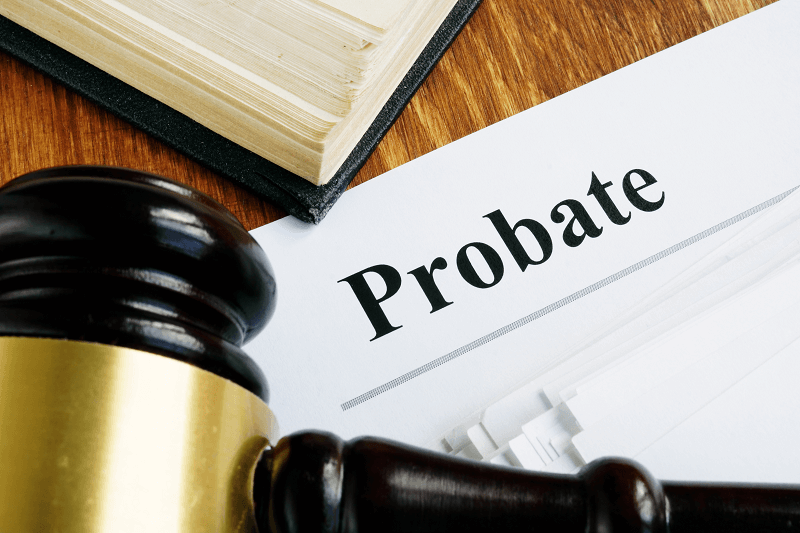
Dealing with a loved one’s estate can be overwhelming, mainly when selling property. Selling a property as an executor can be complex and challenging, requiring a thorough understanding of legal obligations and careful adherence to the deceased person’s wishes.
If you find yourself in this situation, you may wonder whether the executor of a will has the authority to sell a house for cash. Fortunately, as the executor of a will, you do have the power to sell the property. Still, there are certain factors to consider and steps to follow, especially if you’re wondering if the executor of a will sell a house to themselves.
Reviewing the will to understand the deceased person’s intentions regarding the property is crucial. This factor is essential to consider if you want to sell a house fast in Plymouth.
When a testator passes away in estate planning, their chosen executor assumes the crucial responsibility of managing the decedent’s estate property. This fiduciary duty entails safeguarding the assets and ensuring their rightful distribution among beneficiaries. However, the question arises: Can the executor sell a property independently?
The answer is the legal process and the client’s relationship with the deceased. While the executor possesses the authority to sell estate property, it must be done diligently and transparently. Selling at fair market value safeguards beneficiaries’ interests, respecting the testator’s wishes while navigating the complexities of the estate settlement.
By the end of this article, you’ll better understand the executor’s role in property sales.
Can Executor Sell Property Without All Beneficiaries Approving
Whether the executor can sell the property without all the beneficiaries’ approval depends on several factors, including the jurisdiction’s laws and the estate’s specific circumstances.
In general, the executor has the authority to sell the property as part of their duties. Still, they must act in the beneficiaries best interests and follow specific legal procedures.
If they explicitly grant the executor the power to sell property, they can proceed with the sale without obtaining unanimous approval from all beneficiaries.
The executor’s authority in this regard is usually outlined in the will and can include some limitations.
However, the situation will vary if the will is silent or does not explicitly grant authority to the executor. In these unique cases, it is best to consult with an attorney or seek guidance from the beneficiaries before proceeding. If there are any conflicts or disagreements, this can pose further issues.
Additionally, some jurisdictions require the executor to adhere to specific legal procedures when selling property, regardless of the provisions in the will or the beneficiaries’ opinions. This procedure could include obtaining valuations, advertising the property, and following specific timelines.
If you don’t comply with these legal requirements, it might lead to complications and potential legal issues; we have experience with this as we buy houses Minneapolis executors want to sell.
What Can an Executor of a Will Do
As the executor of a will, you have a crucial role in administering the estate and ensuring the deceased person’s wishes are carried out strictly. You, as the executor, have a few different responsibilities.
Probate Process
The probate process is another important task you’ll need to take care of as the executor. It’s your job to initiate the process, which involves validating the will, obtaining court approvals, and being appointed (officially) as the executor. Without this step, you won’t have the legal authority to act on behalf of the estate.
To begin the process, You typically need to follow the original will and necessary documentation with the appropriate court and the jurisdiction where the deceased person resided. The court will then review the will to confirm its validity and appoint you as the executor.
Validating will ensure that it meets the jurisdiction’s legal requirements and will include verifying that the will was properly signed, witnessed, and executed under the law.
If issues or challenges arise regarding the will’s validity, such as allegations of undue influence or lack of testamentary capacity, the court may need to address those matters before proceeding.

Asset Management
Asset management is another critical role you have to play. You are responsible for managing and safeguarding the deceased person’s assets during probate.
This factor includes identifying, locating, and taking control of assets like bank accounts, investments, real estate, and personal belongings.
Debt and Expense Management
The executor also ensures that any outstanding debts, taxes, and expenses the state owes are identified, managed, and paid using the state’s funds. This factor could involve working with creditors, assessing claims, and negotiating settlements.
The first step in this part of the process is to gather all relevant information and documentation to identify the debts and expenses associated with them. This step may include reviewing financial records, bills, statements, and correspondence to determine the extent of the estate’s liabilities.
As the executor, you are responsible for assessing the validity and legitimacy of the claims made. This step may involve reviewing the documentation the creditors provided, investigating the claims’ accuracy, and seeking professional advice when necessary.
Sometimes, it may be possible to negotiate settlements or payment arrangements with credit. This step can help minimize the estate’s financial impact and save time and costs.
Property Valuation
You’ll also take on the role of appraising everything within the estate, including investments, personal property, and real estate. This step is a significant part of your job and is necessary for accounting purposes and distribution among beneficiaries.
Estate Distribution
As discussed in the will, your job as the executor is to distribute the deceased person’s assets. This step involves identifying and locating beneficiaries, ensuring the equitable distribution of assets, and addressing any specific instructions or conditions in the will.
Legal and Tax Responsibilities
You’ll also need to take on the legal and tax responsibilities of the will. This step involves resolving legal issues and complying with all tax obligations. This step includes but is not limited to, filing tax returns for the estate.
What Can an Executor of a Will Not Do
While you will have significant authority as the executor of the will, there are certain limitations and restrictions on what you can do.
Modify the Will
Most importantly, The executor does not have the power to change your alter the terms of the will. Their rules only ensure that the deceased person’s wishes, as expressed in the will, are carried out Faithfully. Any modifications to the will should be done through the appropriate legal channels, such as seeking court approval for a will variation.
Act Against the Interests of the Estate
The executor must also always act in the best interests of the estate and the beneficiaries. They cannot take actions that would intentionally harm or disadvantage the estate or those who are set to benefit from it. This step includes self-dealing or making decisions that favor their interests over those of the.
Disregard the Will’s Instructions
The executor is also legally obligated to follow the instructions outlined. They can only ignore or deviate from the provisions if there are exceptional circumstances and legal guidance is sought. It will also be necessary to see court approval for a different distribution plan; this is important for cash home buyers in Minnesota.
Misuse Estate Assets
The executor cannot use the estate’s assets for personal gain or for purposes not related to the administration of the. They must manage the assets prudently and responsibly, always ensuring they are used exclusively for the benefit of the estate and the beneficiaries.
Withhold Information
The executor must keep the beneficiaries informed about the progress of the estate Administration and provide them with any relevant information they need. They should not deliberately withhold information or misrepresent facts in any way.
Act Outside the Scope of Their Authority
It’s also essential that the executor always acts within the scope of their Authority and applicable laws. They cannot exceed the powers granted to them or engage in activities beyond their role as an executor.
Wrapping Up
The probate court recognizes the significance of the executor of an estate in upholding the deceased person’s wishes and maintaining a solid client relationship. This court order empowers them to handle diverse tasks, such as initiating the probate process, managing assets, settling debts, and distributing the estate to interested parties.
However, the executor’s authority has boundaries. They cannot alter the will, act against the estate’s interests, or engage in embezzlement, protecting beneficiaries’ rights.
Seeking guidance from an experienced estate lawyer becomes imperative to navigate these complexities and avoid potential pitfalls.
As an executor, diligent adherence to the will’s provisions ensures a fair and successful estate administration, fostering a sense of trust among family members and avoiding interstate conflicts that may necessitate involvement from a law firm.
However, the most efficient way for executors is to seek legal advice and guidance to navigate their responsibilities effectively and comply with applicable laws and the will’s provisions. If you have any questions regarding whether or not you, as the executor of a will, can sell a property, it is also essential to seek advice from trusted legal counsel.
